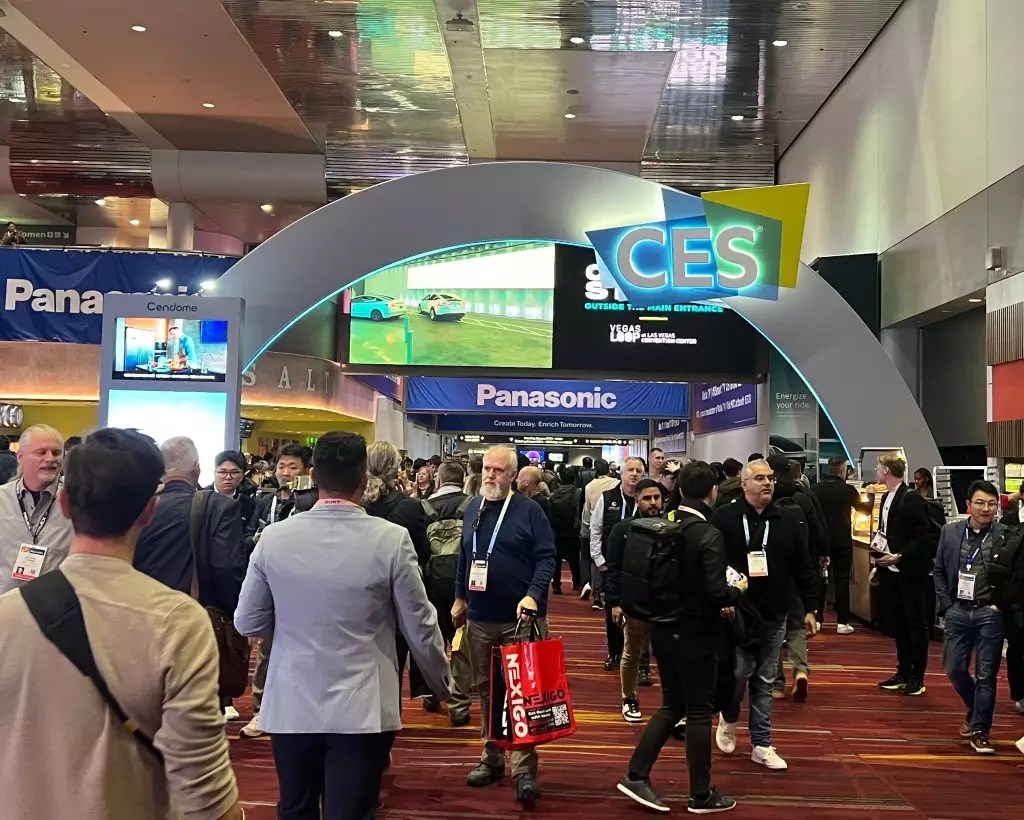The Consumer Electronics Show (CES) has evolved well beyond its initial role as a platform for tech gadgets; it now serves as a vital nexus where the entertainment industry converges with technology. The 2023 edition in Las Vegas marks yet another chapter in this ongoing narrative, characterized by a palpable urgency within traditional media sectors. As they grapple with declining theatrical revenues and waning linear television viewership, media companies are increasingly leaning into technological innovations for survival. Amidst an array of challenges, there exists a silver lining—technology is viewed as a beacon of potential, albeit one with its own set of complexities distinct from the Hollywood ethos.
The presence of major tech players, including Sony and Panasonic, coupled with entertainment giants like Disney and Warner Bros. Discovery, showcases this blending of industries. Both sectors, while historically different in approach and culture, recognize the necessity of collaboration in navigating the evolving landscape of viewer demands. Keynote speeches from industry leaders such as the CEOs of SiriusXM and Nvidia further accentuate the importance of technological integration in shaping future entertainment.
Among the standout trends at CES this year is the role of artificial intelligence (AI). Nvidia, with its staggering market cap, has transitioned from a peripheral player in entertainment to being central to processes such as animation and special effects. Once considered an outsider, Nvidia’s AI chips have become indispensable tools for modern creators, reflecting how technology not only assists but elevates creative expression in the entertainment sphere. This evolution is emblematic of broader shifts within the industry, where AI is gaining prominence as a creative partner rather than a mere utility.
The discussions at CES are not limited to technology providers; content creators are also retuning their strategies. For instance, Jeffrey Katzenberg, previously associated with the now-defunct Quibi, has returned to the CES stage to contribute to OpenAP’s Audience Summit. By fostering dialogue around the challenges and chances within the streaming landscape, the event highlights the industry’s collective effort to adapt in an era defined by rapid change.
As the advertising sphere undergoes transformation, CES has become an essential meeting point for industry leaders to strategize. Figures like Mark Marshall from NBCUniversal have underscored how the event acts as a prelude to upfront discussions—a key moment for advertisers. With a focus on their upcoming landmark centennial in 2026, NBCUniversal is keen on leveraging the momentum created at CES to amplify interest in its major upcoming events such as the Super Bowl and the FIFA World Cup.
Disney has adopted a similar approach, framing its Global Tech + Data Showcase as a key CES event. Discussions led by Disney’s executives highlight the company’s commitment to technological differentiation, asserting their capacity to compete against not only traditional rivals but also emerging tech platforms. This dual focus on scale and innovative content production positions them uniquely to attract advertisers seeking impactful opportunities in a crowded marketplace.
The intersection of branding and consumer experience is more pronounced than ever in this tech-infused environment. For instance, the initiatives by Warner Bros. Discovery to create engaging sponsored experiences—like the “Taste of Thailand” event—demonstrate a commitment to not only promoting content but also refining how audiences interact with it. By integrating distinct experiences tied to shows such as HBO’s “The White Lotus,” the company aims to deepen audience engagement and elevate brand perception in a competitive ecosystem.
As media entities experiment with innovative approaches to reach consumers, the role of advertising continues to shift from traditional methods to more immersive experiences. The expectation is clear: advertisers must pivot away from passive consumption models toward strategies that actively engage viewers, a sentiment echoed by analysts observing these evolving dynamics.
As the industry navigates an intricate relationship between entertainment and technology, a common theme emerges: the pivotal nature of adaptability. Companies that can effectively embrace changes in consumer behavior will ultimately forge ahead, capitalizing on emerging trends while ensuring they resonate with audiences. With technological advancements propelling creativity and new advertising strategies reshaping consumer interactions, the roadmap ahead is complex yet ripe with potential.
CES 2023 not only illuminates the potential of technological advancements to redefine the entertainment landscape but also serves as a critical touchpoint for industry players to strategize and adapt. As traditional media seeks to reclaim relevance in a digital world, the collaborative spirit observed in Las Vegas could herald a promising future. Companies willing to innovate and embrace change will likely thrive in a landscape that is as challenging as it is exciting.


Leave a Reply